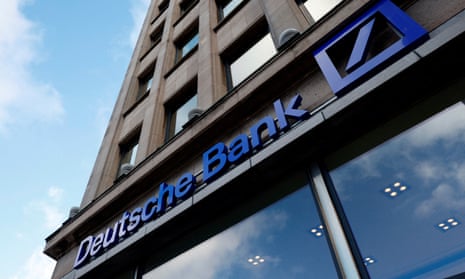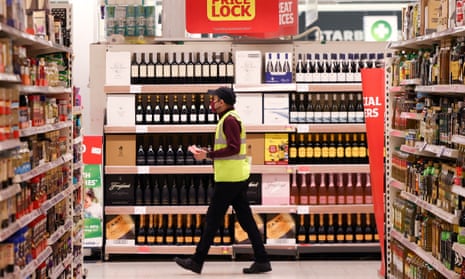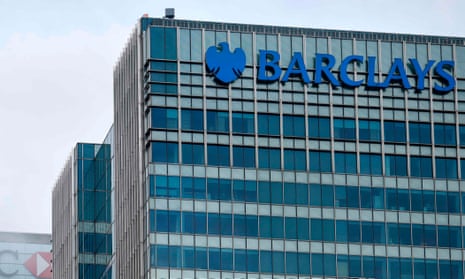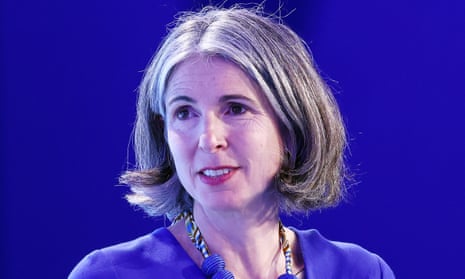Microsoft: ‘The English Channel has never seemed wider’
Good morning, and welcome to our live coverage of business, economics and financial markets.
Microsoft has strongly criticised the UK and the Competition and Markets Authority (CMA), after the regulator on Wednesday blocked the US tech company’s $69bn (£55bn) takeover of games maker Activision Blizzard.
The US company came out swinging on Thursday morning.
The CMA’s move could scupper the entire deal for the maker of titles such as the Call of Duty first-person shooter franchise. Microsoft said that it made the EU seem more attractive for people to start businesses.
Brad Smith, a president at Microsoft, said in an interview on BBC radio’s Today programme:
We’re of course very disappointed about the CMA’s decision, but it’s more than that. Unfortunately I think it’s bad for Britain.
Activision Blizzard had already said that the deal made it appear that the UK was “closed for business”. The CMA argued that the deal would damage competition in the nascent cloud gaming market.
He made strong criticisms of the UK’s approach to regulation in comparison to the EU’s regulators, who are also examining the proposed takeover. He said:
For all of us who had some hope that the UK post-Brexit, that the UK would construct a structure that would even be more flexible, that would be better for investment, better for technology, we’re now finding that the opposite appears to be true.
I don’t think people are going to want to start a company in a country that will have regulators who will stop them from selling it to another company if the day arrives. There is a clear message here. The European Union is a more attractive place to start a business if you want someday to sell it than the United Kingdom.
The English Channel has never seemed wider in terms of Europe as a continent being attractive for investment, Brussels as a place where one can sit down and actually have a conversation with the regulators who are accountable to the elected leaders, and the difference we now confront in London, where we have regulators who are not only unelected, but unaccountable and now making decisions that just feel fundamentally unwise.
We will have more to come from Smith’s interview, and also the comments of the CMA this morning.
The agenda
Key events
Aletha Adu
Here are those comments from Rishi Sunak’s spokesman on Microsoft’s criticisms of the UK in full.
The Prime Minister’s spokesman said:
More broadly, those sorts of claims are not borne out by the facts. The UK’s games market is rapidly growing. It’s doubled in size over the past decade to its current value of £7bn in 2022.
Last year the UK became the third country in the world to have a tech sector valued at one trillion dollars (£802bn). That’s behind only China and the United States in terms of investment, and the first in Europe by some distance.
We continue to believe, as I set out, that the UK has an extremely attractive tech sector and a growing gains market. We will continue to engage proactively with Microsoft and other companies. That won’t change.
One thing missing in Microsoft’s public criticisms of the UK is the comparison with the US.
The US Federal Trade Commission is suing to block the takeover of Activision Blizzard by Microsoft as well.
European authorities could also block the deal, although Microsoft’s Smith appeared confident the company could assuage EU concerns. Microsoft is expected to appeal the CMA’s ruling.
For the US political right (or at least the pro-big business part of the right that has survived Donald Trump’s takeover of the Republican party) the prospect of a British regulator blocking a deal between two US-headquartered companies is not welcome whatsoever.
Jay Clayton and Gary Cohn, two top officials in Trump’s administration, have written a joint opinion article for the New York Times (£) in which they accuse the UK Competition and Markets Authority (CMA) of being “the tail wagging the dog”.
They see the CMA decision as US Democrats “finding a way to substitute European Union regulation, which is more in line with progressive objectives, for US regulation”.
They wrote:
[T]he Federal Trade Commission, which is unapologetically anti-merger when it comes to Big Tech, has been using all available means to block the transaction. This includes making procedural choices that have, intentionally or not, allowed British regulators to step in and propose their own remedies.
[N]ow there is no doubt that a transaction involving two major US companies will have its timing and material terms dictated by Europeans.
There are some confusing aspects of the article – not least the fact that the CMA’s Microsoft decision appears to be used as evidence of the “European Union’s unprecedented power grab” over US companies.
Nevertheless, it shows how the UK’s approach to Big Tech has to strike a sensitive balance the British government’s desire for more muscular regulation with the geopolitical implications of regulating US-headquartered companies.
Sunak spokesman: Microsoft comments are not accurate
It isn’t often that a senior executive at a global tech company bashes the UK’s whole approach to business, but that was the challenge laid down by Microsoft president Brad Smith to Prime Minister Rishi Sunak this morning.
Smith said that the decision by the UK’s Competition and Markets Authority suggested that the EU was now a more attractive place for people to start a business. And he suggested that it meant that the UK post-Brexit has become less welcoming for business.
You can read the full comments in this morning’s post.
Sunak’s spokesman has responded. According to Reuters, he noted that the watchdog is independent.
The Microsoft comments are not accurate, and Britain has an attractive tech sector, the spokesman said.
The government will continue to engage proactively with Microsoft, he added.
The market reaction to the government’s gambling reforms has so far been fairly limited.
Shares in Entain, the owner of brands like Ladbrokes and Coral, are up by 0.6% today. Flutter Entertainment, the owner of Paddy Power and Betfair, has dipped by 0.3%.
Entain has put out an initial statement welcoming the publication of the review, but adding that it will need detailed assessment. Flutter said it would have to look at it more closely before commenting.
Jette Nygaard-Andersen, Entain’s chief executive, said:
The UK Gambling Act Review is an important step towards having a robust regulatory framework that is fit for the digital age and creates a level playing field for all operators. We welcome the clarity that it will bring to the industry and customers.
She said the company had already brought in a “comprehensive range of actions to protect our customers”.
Entain also hints at a reason that the market reaction has been muted. The company said many of the proposals “align with actions that Entain has already implemented”. That includes Entain’s voluntarily paying 1% of UK gross gaming revenues to the UK government – suggesting the levy increase will not affect their financials too much.
Government reveals gambling reforms including online slot stake limits

Rob Davies
Proposals to tighten regulation of online gambling have been published by the government, in a long-awaited shake-up of laws passed before smartphones put 24-hour casino games and sports betting in every pocket.
After multiple delays, the Department for Digital, Culture, Media and Sports (DCMS) released a white paper on Thursday morning, laying out its blueprint for regulating the modern gambling industry.
The culture minister Lucy Frazer told the House of Commons that gambling could wreck lives and ministers were “bringing our pre-smartphone regulations into the present day with a gambling white paper for the digital age”.
The proposals include:
-
A 1% mandatory levy on industry revenues.
-
Tougher affordability checks to prevent huge losses.
-
Online slot machine stakes capped at between £2 and £15.
-
Curbing “free spin” and “bonus” offers.
-
Measures to slow down online casino games.
-
More resources for the Gambling Commission.
-
Plans for a gambling ombudsman.
Some of the measures – such as slot machine stakes and bonus offers – will go out for further consultation, signalling fresh delay to a process that began in late 2020, when the government launched a review promised in Boris Johnson’s 2019 election manifesto.
Three days of strikes by UK train drivers – including FA Cup final day

Gwyn Topham

Train drivers’ union Aslef has announced three more days of rail strikes in May and June, dashing hopes that the long running dispute could be coming to an end.
Drivers at England’s government-contracted train operating companies will stage three separate 24-hour strikes after the union rejected what it called a “risible” 4% pay offer.
The strikes are likely to stop most, if not all, trains at the affected companies, which include the main intercity operators and commuter services around England, and also some cross-border services to cities and towns in Scotland and Wales.
The strikes will take place on Friday 12 May, Wednesday 31 May, and Saturday 3 June, the day of the FA Cup final when many fans will be travelling from the north-west to London to see two Manchester teams play at Wembley.
The affected companies are Avanti West Coast; Chiltern Railways; CrossCountry; East Midlands Railway; Great Western Railway; Greater Anglia; GTR – Great Northern and Thameslink; LNER; Northern; Southeastern; Southern/Gatwick Express; South Western Railway; SWR depot drivers; SWR Island Line; TransPennine Express; and West Midlands Trains.
You can read the full story here:

Deutsche Bank is to cut 800 jobs in the German lender’s latest cost-cutting drive – even as it reported its highest profits in a decade.
Profit before tax rose by 12% year-on-year to €1.9bn (£1.7bn), the highest quarter since 2013. Revenues grew by 5% to €7.7bn, the biggest since 2016.
European banks have struggled during the 15 years since the financial crisis, and Deutsche Bank has long had to face questions about its future. Rising interest rates have finally started to help banks, but they are still trying to persuade investors that they are doing enough to improve their profitability.
When asked about the job cuts, Deutsche Bank chief executive Christian Sewing told reporters:
We need to further speed up and that’s what we are doing.
Reuters reported:
The jobs will come from across the bank but will be focused on senior non-client facing roles, executives said, describing the move as one of several measures to cut costs by an additional €500m over the next few years. Deutsche’s staff totalled 86,712 at the end of the first quarter.
When costs are rising rapidly companies are often faced with a choice: keep prices the same and lower profitability, or raise prices and risk losing sales. But Unilever, Britain’s biggest consumer goods company, has managed to push up prices further without a big fall in volumes.
Investors appear contented this morning after its latest results. Unilever’s share price has gained 1.5% so far today.

Here is Reuters’ take on the results:
Unilever smashed quarterly sales forecasts on Thursday as another big rise in prices from the maker of Dove soap and Ben & Jerry’s ice cream triggered only a small dip in volumes, sending its shares up nearly 2% in early trade.
The 10.7% increase in prices was, however, lower than in recent quarters, adding to signs inflationary pressures might be easing as input costs declined.
Unilever reported a 10.5% rise in underlying first-quarter sales to €14.8bn (£13.1bn), beating analysts’ average forecast for a 7.2% increase, according to a company-provided consensus.

Sarah Butler

Sainsbury’s profits slumped by more than 60% last year despite a near 6% rise in sales as the company said it was battling inflation.
The UK’s second biggest supermarket said it made pre-tax profits of £327m, down from £854m a year before, after £363n of one-off items including the cost of restructuring its Argos business and write downs on the value of stores.
Underlying profit fell 5% to £690m, better than analysts had expected, but the company said profits were most likely to fall again in the year ahead – predicting an outcome of £640m to £700m.
Simon Roberts, the chief executive of J Sainsbury plc, said Sainsbury’s had spent more than £560m on keeping its prices down in the face of high inflation over the last two years – £10m more than planned.
After that early flurry of news, it’s time to check on UK corporate updates published this morning.
The UK’s FTSE 100 benchmark stock index is flat – it was reading a 0% gain a few seconds ago – but the one larger move on the index is Barclays bank. Its shares gained 4.7% in the first hour and a half of trading.

Barclays reported a record-high profit for the first three months of the year as higher interest rates bolstered its income in the UK, the Press Association reports.
The bank said it made a pre-tax profit of £2.6bn in the first quarter of the year, jumping well ahead of analysts’ expectations of a £2.2bn profit, and 16% higher than this time last year.
It marks the highest quarterly profit since 2011 when accounting standards changed, Barclays said.
The bank is putting behind it some of the “legacy issues” – an expensive trading blunder and and investigation into its former chief executive’s relationship with convicted sex offender Jeffrey Epstein – that have distracted investors at previous results, said John Moore, senior investment manager at RBC Brewin Dolphin, said:
Barclays’ results demonstrate what it is capable of. The bank’s previous updates have tended to be overshadowed by legacy and conduct issues – this seems like the first time in a while its performance has been the principal focus. Profits are surging in the higher interest rate environment and the addition of bolt-on acquisitions should be income accretive for the future.
There is, perhaps, a nod to the banking sector’s recent troubles by the absence of a commitment to increased shareholder returns, despite significant improvements more or less across its operations. Nevertheless, Barclays is in a good position, with a strong balance sheet and diversified income stream, with the shares rallying from recent lows.
In another important detail from Rain Newton-Smith’s interviews, the Confederation of British Industry’s new director-general revealed that she had previously raised concerns about sexual harassment within the lobby group.
She told the BBC:
Whenever I have seen sexual harassment, I have acted and I raised those issues.
Newton-Smith, who served as the CBI’s chief economist until March, also acknowledged that “something has gone badly wrong” at the group, but said that it the culture had not appeared harmful to her.
That’s not how it felt when I was here, but at the same time I, like everyone else, have read the stories of the survivors of rape in the papers from the outside, and I know that something has gone badly wrong.
New boss of Confederation of British Industry to rename lobby group

The new boss of the crisis-stricken Confederation of British Industry has said she will rename the lobby group in an effort to show it is changing its culture following the Guardian’s revelations of allegations of serious sexual harassment.
Rain Newton-Smith, who was hurriedly appointed as the CBI’s new director-general this month to try to mend its reputation, must contend with an exodus of big businesses who have said they have already quit or suspended their membership.
Newton-Smith served as the CBI’s chief economist for nine years. She suggested that Britain’s biggest business lobby group – and previously its most influential – could be smaller in the future.
She spoke to the Financial Times and the BBC in interviews published on Thursday, after her first day in the job on Wednesday. To the FT, she said that the group would present proposals for the group to revive itself in June:
Personally, over time, I’m sure we’re going to see a new name for the CBI, but that’s just the wrapper that goes on the outside. What matters is what we do, what we deliver and our purpose.
The CBI that emerges from this is not going to be the CBI of the past, that is clear. It needs to be a new, a different organisation.
CMA: Microsoft/Activision Blizzard deal would have harmed competition

So what does the Competition and Markets Authority (CMA) say in response to Microsoft’s strident criticisms this morning?
Sarah Cardell, the CMA’s chief executive, said the decision to block the deal would be good for UK gamers and businesses. She also said there was “a lot of alignment” between the UK position and that of the US Federal Trade Commission, which is also considering whether to block the deal.
Speaking to BBC radio’s Today programme, Cardell said:
I really don’t agree with those comments at all. I think this decision shows how important it is to support competition in the UK, and that the UK is absolutely open for business. We want to create an environment where a whole host of different companies can compete effectively, can grow and innovate. That’s the best thing for UK consumers, and the best thing for UK businesses.
Cloud gaming – where games are streamed from central servers rather than played from expensive local devices – could change the shape of the games market, Cardell said. The regulator wants to see a market that is “really open for competition”.
That would not be the case if the merger went through, she said. Microsoft has a 60% to 70% share of cloud gaming, while Activision Blizzard has a strong portfolio of games.
What we found was that Microsoft already is the most powerful cloud gaming platform.
Combining those two businesses would really reinforce Microsoft’s strong position in cloud gaming. And that would be problematic because it would really harm the ability of other competing cloud platforms to compete effectively and offer the kind of innovation and product choice that we want to see in this market.
Addressing Microsoft’s allegation that the CMA went silent, Cardell said the company had “ample opportunity to put their case to us”.
Microsoft’s anger about the blocked Activision takeover is concentrated on the way that the Competition and Markets Authority (CMA) has handled itself.
In particular, the tech company’s president, Brad Smith, said the CMA had fallen silent in communications ahead of the announcement that it would not approve the takeover, and that it had not seemed willing to engage with the companies over how they could address the regulatory concerns.
Smith said:
The strong message the CMA has sent is not just to surprise everyone who fully expected this acquisition to be approved, but to send a message that I think will discourage innovation and investment in the United Kingdom.
The impact of this decision is far broader than on Microsoft or this acquisition alone. I think the impact on the UK unfortunately is to shake the confidence among the business community in the UK and the CMA as a regulatory agency. When we study the decision we feel in part it’s based on such a flawed or just faulty understanding of the market.
Smith said concerns about a combined company’s dominance of cloud gaming were too minor to scupper the whole deal. One interesting point he noted: Microsoft currently only has the ability to serve 5,000 cloud gamers in the UK at any one time. Cloud gaming requires a constant flow of data between central servers and gamers – which requires a huge amount of bandwidth.
I think it leaves people worried and it leaves people thinking, actually, the process in Brussels worked far better than what we’re now addressing in London.
This decision is probably the darkest day in our four decades in Britain. It does more to shake our confidence in the future of the opportunity to grow a tech business in Britain than we’ve ever confronted before.
Asked whether it will affect Microsoft’s investment decisions, Smith said: “It certainly will not help. It’s extremely disappointing and even frustrating.”
Microsoft also offered a 10-year undertaking not to limit games to its own platform.
Asked if he had a message to Prime Minister Rishi Sunak – who has cultivated something of a tech-friendly image – Smith said a rethink of the CMA’s role might be needed. He said:
I think that if the government of the United Kingdom wants to bring in investment, if it wants to create jobs and if it wants to make the United Kingdom a home where technology is not only going to flourish but be creative, then it needs to look hard at the role of the CMA, the regulatory structure, this transaction, and the message that the United Kingdom has sent to the world.
Microsoft: ‘The English Channel has never seemed wider’
Good morning, and welcome to our live coverage of business, economics and financial markets.
Microsoft has strongly criticised the UK and the Competition and Markets Authority (CMA), after the regulator on Wednesday blocked the US tech company’s $69bn (£55bn) takeover of games maker Activision Blizzard.
The US company came out swinging on Thursday morning.
The CMA’s move could scupper the entire deal for the maker of titles such as the Call of Duty first-person shooter franchise. Microsoft said that it made the EU seem more attractive for people to start businesses.
Brad Smith, a president at Microsoft, said in an interview on BBC radio’s Today programme:
We’re of course very disappointed about the CMA’s decision, but it’s more than that. Unfortunately I think it’s bad for Britain.
Activision Blizzard had already said that the deal made it appear that the UK was “closed for business”. The CMA argued that the deal would damage competition in the nascent cloud gaming market.
He made strong criticisms of the UK’s approach to regulation in comparison to the EU’s regulators, who are also examining the proposed takeover. He said:
For all of us who had some hope that the UK post-Brexit, that the UK would construct a structure that would even be more flexible, that would be better for investment, better for technology, we’re now finding that the opposite appears to be true.
I don’t think people are going to want to start a company in a country that will have regulators who will stop them from selling it to another company if the day arrives. There is a clear message here. The European Union is a more attractive place to start a business if you want someday to sell it than the United Kingdom.
The English Channel has never seemed wider in terms of Europe as a continent being attractive for investment, Brussels as a place where one can sit down and actually have a conversation with the regulators who are accountable to the elected leaders, and the difference we now confront in London, where we have regulators who are not only unelected, but unaccountable and now making decisions that just feel fundamentally unwise.
We will have more to come from Smith’s interview, and also the comments of the CMA this morning.

